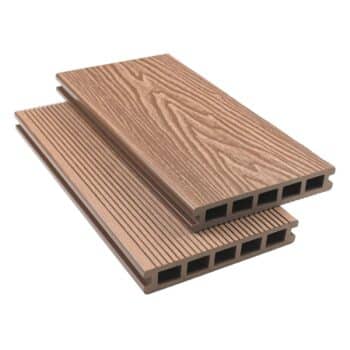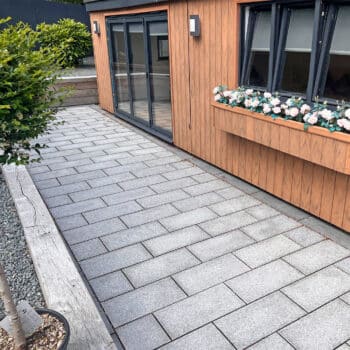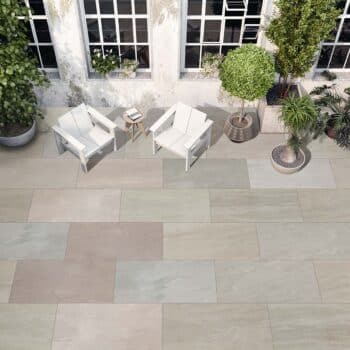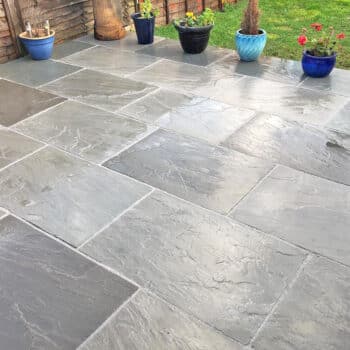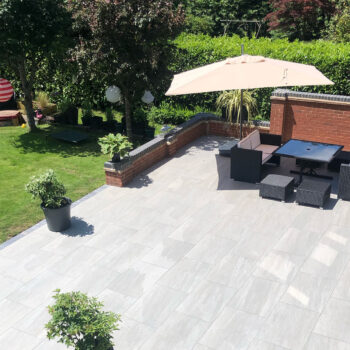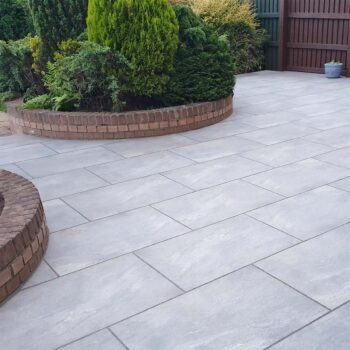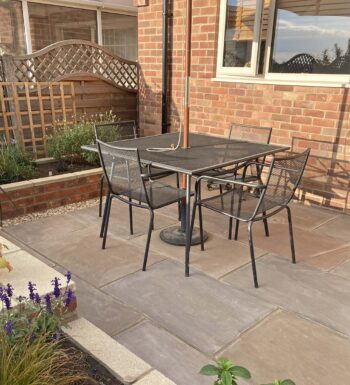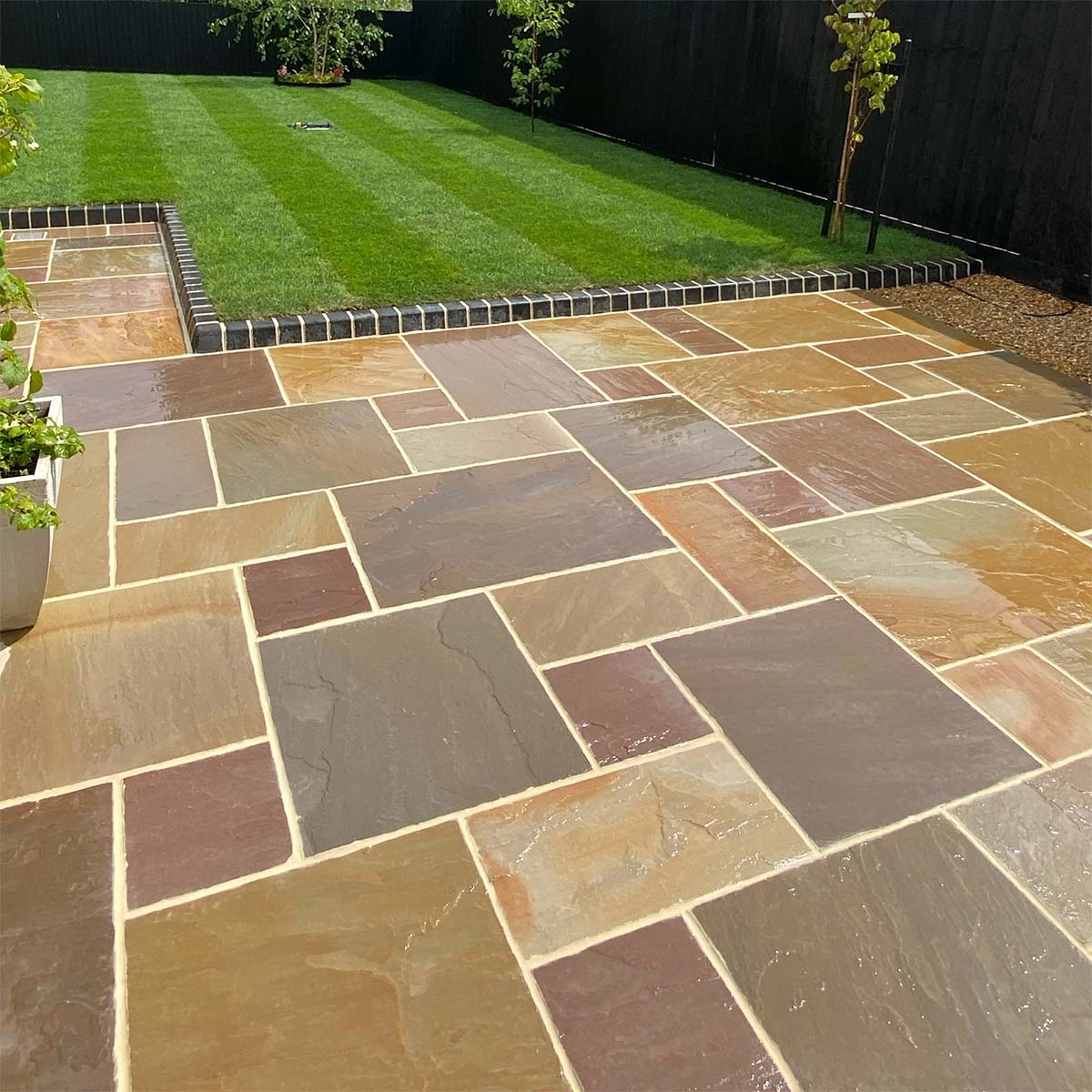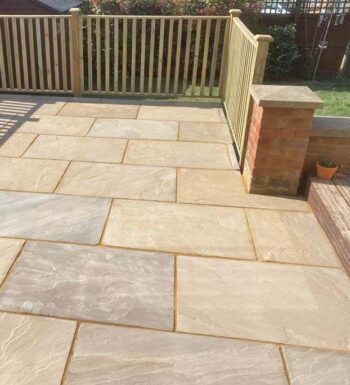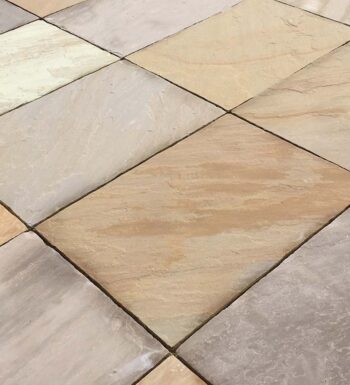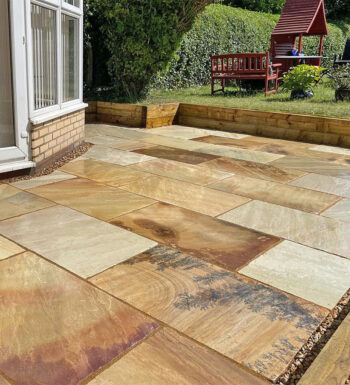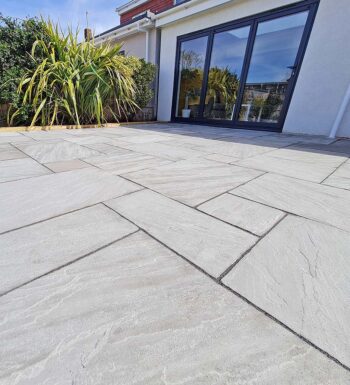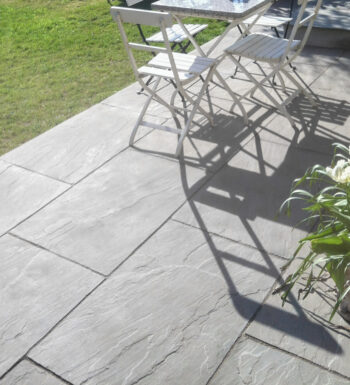Riven Sandstone Paving
Transform your garden or patio with the medley of natural colours and tones found within our riven sandstone paving. This choice of garden paving offers the charm and appeal that only natural sandstone paving can offer.
With beautiful variations in colour throughout, no slab is the same and each paver features its own unique tones and textures formed naturally over thousands of years, promising your garden or patio a finish filled with character!
With a naturally riven surface, this Indian stone is suited to any traditional patio design and is one of our most popular choices of garden paving available.
What Is Riven Sandstone Paving?
A riven surface is created when the stone is split along its natural layers, providing a truly authentic finish. This process leaves beautiful variations in texture throughout the surface of each slab, one of the main appeals of Riven Sandstone Paving. Each riven slab features hand-dressed edges which add to the natural, organic look and feel to create a timeless appeal to any traditional design. This style of sandstone paving is suited to traditional settings and is a great alternative to Yorkstone, whilst also less expensive!
Tumbled paving is treated by passing riven slabs through a slowly rotating drum, a process that smoothes off the edges, corners and surfaces of the slab to give the stone a slightly aged look that will blend seamlessly into any space as if it had already been there for years! When tumbling a riven stone, the variations in the surface texture of the slabs remain but any harsh rivens are smoothed off, resulting in a lightly riven finish that is much smoother to the touch and gives the stone a long-established appearance which is perfect for a traditional patio design, adding character to the space.
Sealing Riven Sandstone Paving
It’s generally advised to seal riven sandstone paving to help prevent staining, as well as helping to prevent the growth of any moss or algae. You may want to consider sealing your slabs if your stone is light in colour, as any stains will be more visible, but sealing is not compulsory and there are plenty of options that will provide various results! Some sealants will simply seal and protect, whereas others can even be used to enhance the colour of your slabs. Sealing sandstone paving will also help to protect against other general wear such as fading which can sometimes occur over long periods. As for when to apply a sealer, there are no specific guidelines and most landscapers will have their own tried and tested methods. Some people choose to seal their paving slabs before laying to prevent any staining during the laying process and others prefer to leave their stone unsealed for up to a year, allowing the sandstone to weather naturally first. To find out what is best for you, we always advise speaking to a local tradesperson who will be able to assess the needs of your project. You can find out more about Sealing Paving Slabs on our blog!
What is Calibrated Sandstone Paving?
The term ‘Calibrated’ means that the slabs have been cut to a consistent thickness. Calibrated sandstone paving is easier to lay than un-calibrated slabs as it eliminates any large variations in thickness between each paver, removing the need to consider this during the laying process.
Natural Colours & Variations
Sandstone products are entirely natural and will feature variations in colour, tone and pattern. This is a feature of the product and our product images will give a great overview of some of the natural variations you could receive. Colours will appear more vibrant when wet and subtler prior to installation before the stone has absorbed any moisture.
From The Blog
Find out more about Riven Sandstone Paving and discover the full range of options available to you, as well as the different benefits of each!
Contact Us Today
Find the answers to our most frequently asked questions here. Alternatively, to speak to a member of our team, contact us on 01206 700 599 or support@nustone.co.uk.
